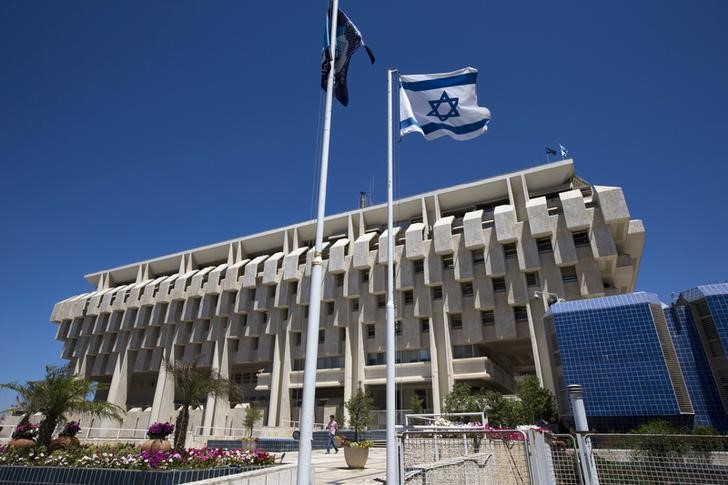By Steven Scheer
JERUSALEM (Reuters) - Israel's central bank will remain aggressive in battling the strong shekel
Andrew Abir told Reuters in an interview that the bank would continue taking action on the shekel until there was an "unwinding" of the current over-appreciation.
"We continue to be concerned about what we regard as a marked over-valuation of the exchange rate," he said.
"An over-valued currency constrains the growth of exports and given that Israel is a very open economy and exports are a crucial part of growth, we look at developments in the sector very closely."
While the shekel was largely stable against the dollar in 2015, it gained 10 percent versus the euro (EURILS=). More importantly for the central bank, it strengthened more than 7 percent against a basket of currencies of its main trading partners - mainly the United States, euro zone and China.
The shekel's nominal effective rate, which was re-based at 100 in 2010, stands at 86.31, strengthening nearly 14 percent in the past five years and hovering at its strongest level since 2001.
The Bank of Israel bought some $5.7 billion (4 billion pound) of foreign currency last year to try to contain the shekel's gains on top of another $3.1 billion it bought to offset the impact of natural gas production on the exchange rate.
It plans to buy $1.8 billion in 2016 as part of its gas programme.
Abir said the bank - which took its benchmark interest rate down to 0.1 percent nearly a year ago - does not have a target level for where the shekel would be properly valued. "Our present evaluation is that we think the market is mispriced in terms of fundamentals," he said.
"To stand and do nothing would have very detrimental effects on the Israeli economy." He added that the source of the shekel's strength is "a conundrum".
Part of it is likely due to the very optimistic assessment of natural gas on Israel's economy but Abir played down the effect of an improvement in Israel's current account surplus.
"Most of the improvement in the current account has come from lower energy prices," he said, adding that phenomena has been enjoyed by other energy importers and cannot explain the appreciation of the shekel against such countries' currencies.
EXPORTS
Israel exports, which account for 35-40 percent of economic activity, fell 3 percent in 2015 after a 1.5 percent gain in 2014, according to the Central Bureau of Statistics. The central bank projects 4 percent exports growth in 2016.
While weak global trade is the main factor, the strong shekel also plays a large part, Abir said, citing world trade growth of 3.5 percent annually between 2007 and 2015.
"In the last couple of years, Israel's exports have performed less well than what would have been expected from an increase in world trade growth," he said.
The central bank began buying foreign currency in early 2008 and Abir said it likely will not stop in the near term.
"We will do what it takes until we feel the situation has changed in terms of the Israeli economy," he said.
He add: "(There must be) an unwinding of what we think is the over-appreciation of the shekel compared to where fundamentals would have it. You don't know when that will occur. But we do know from other foreign exchange markets that when unwinding occurs it can be rapid."
Since 2008, Israel's reserves have swelled by about $60 billion to a record $90.6 billion. Abir said that level is in the middle of the central bank's range of $70-$110 billion in what it regards as "adequate to deal with crises."

"For monetary policy purposes, we can go over that range," Abir said. "We've seen how quickly the reserves of other countries have gone down in crisis times."